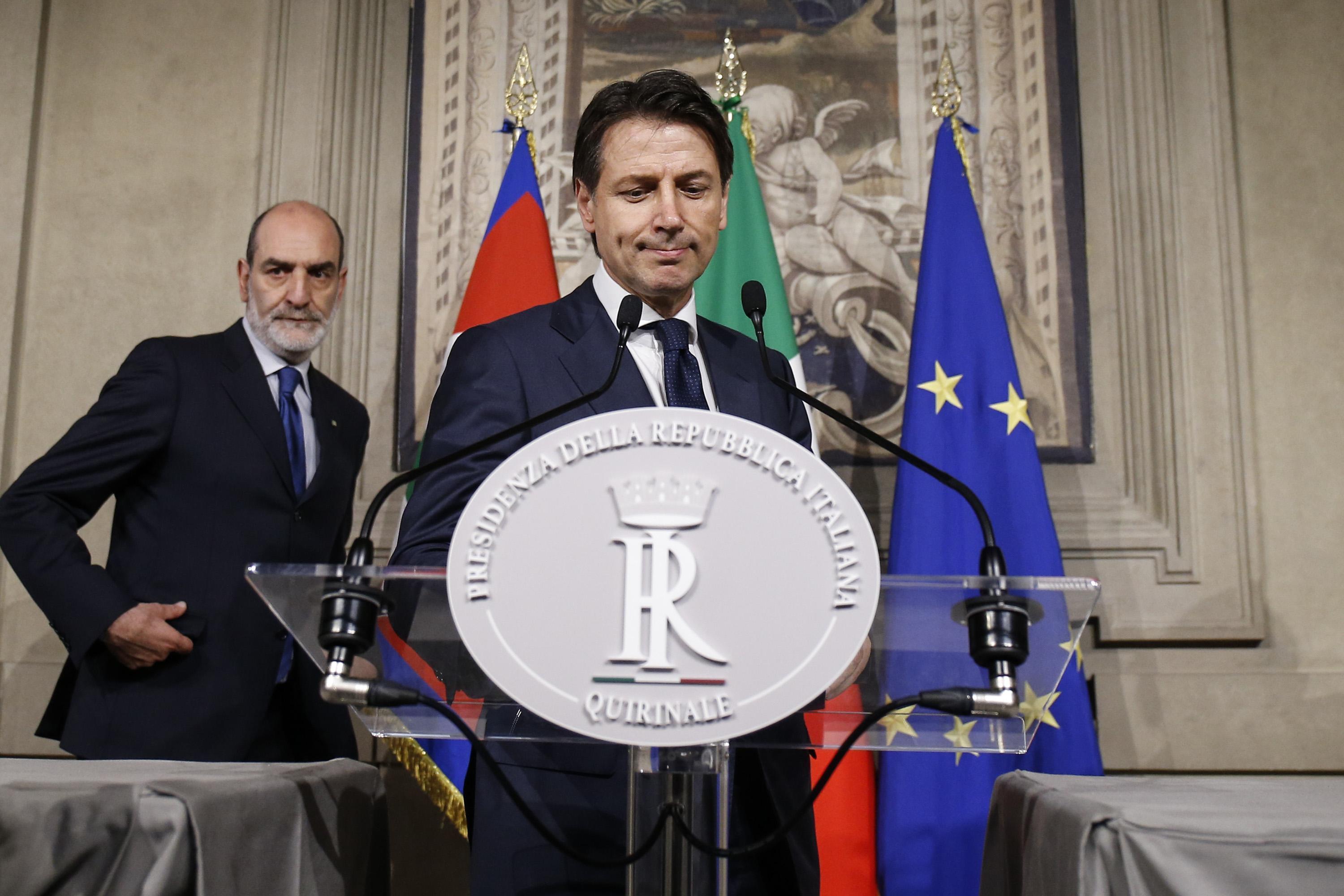
By FRANCES D’EMILIO
Associated Press
ROME (AP) — Amid growing political turmoil, economist Carlo Cottarelli was tapped on Monday to lead Italy to early elections, possibly as soon as after the summer, after populist parties failed to convince the president their Cabinet picks wouldn’t destroy international investors’ faith in the country. A former International Monetary Fund official and a specialist in budget slashing, Cottarelli told reporters at the presidential Quirinal Palace that he had accepted President Sergio Mattarella’s request to form a government “that will bring the country to new elections.”
Inconclusive March 4 elections left the country facing what has proved to be an intractable political impasse. Bond markets suggested investors are becoming more cautious about lending to Italy. Cottarelli expressed hope his appointment could calm the markets. “In the last few days, tensions have increased in the financial markets,” the premier-designate said. “In any case, the Italian economy is growing, and the public accounts remain under control. A government led by me would assure prudent management of our public accounts.” But with the prospect of anti-euro political sentiment suddenly gaining traction in Italy, and another election approaching, markets remained on edge.
The government’s benchmark borrowing rate increased further, a sign of caution, even after Cottarelli was tapped. The 10-year rate hit 2.6 percent Monday, up sharply from 1.7 percent last month. That is still very manageable for the government, however, and well below the 7 percent rate that forced a change of government in 2011. Weeks ago, an exasperated Mattarella told the nation that if Italy’s squabbling parties failed to join forces for Italians’ common good and forge a viable coalition, he would tap a technocrat, an expert not directly affiliated to political parties, to take the country to elections by year’s end.
That is what ultimately happened after Mattarella on Sunday night refused to approve the populists’ choice of an economy minister who has raised the specter of Italy having to someday exit from the euro, the EU currency shared by 19 countries. The 5-Star Movement and the right-wing League, the Eurosceptic parties which were thwarted in their bid to give Italy its first populist government, have vowed to give Cottarelli the thumbs down in required confidence votes in Parliament. A government led by Cottarelli “is born dead,” said 5-Star proponent Manlio Di Stefano. “It makes no sense to speak about it in a serious way.”
Mattarella’s veto enraged both the 5-Stars’ Luigi Di Maio, who threatened to start impeachment proceedings against him, and League leader Salvini, who had essentially issued the president an ultimatum over his economy minister candidate — approve him or the coalition implodes and the turndown becomes campaign fodder to excite voters feeling their political will was foiled. Buoyed by recent triumphs in local elections, Salvini immediately started charting the new political landscape with elections looming on the horizon. “This isn’t democracy, this isn’t respect for the popular vote,” Salvini said. “It’s just the last gasp of the strong powers who want Italy as a frightened, precarious slave.”
“The next elections will be a plebiscite, the people and real life against the old castes and the Lords of the Spread,” Salvini said, referring to financial speculators, in a statement issued by his League. In his brief remarks, Cottarelli made plain he knew any government of fellow technocrats he assembles might not be approved by Parliament. “In case of failing to win the confidence votes, the government would immediately resign, and its task would be that of routine administration until elections after the month of August,” he said.
Cottarelli said that should his proposed Cabinet be confirmed in Parliament, he would set to work to ensure the country’s official budget is approved by lawmakers. The budget law must be approved by December. After that, Mattarella would dissolve Parliament and set elections for 2019, Cottarelli said. Mattarella said he had vetoed Salvini’s economy minister candidate to spare Italian investors, businesses and families seeing more of their resources “burned” up by nervous markets losing faith in Italy’s willingness to back the euro and European Union.



















